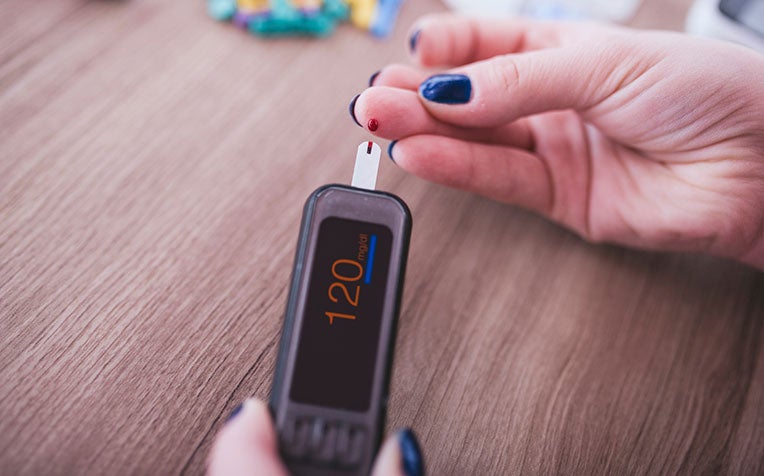
Diabetes complications like kidney failure or diabetic nephropathy can be prevented by keeping blood sugar in check.
Diabetic nephropathy: when poor blood sugar control causes kidney disease
If you have diabetes but fail to keep your blood sugar within an acceptable range, you run a significant risk of developing kidney disease. Diabetic kidney disease or diabetic nephropathy affects about 40 per cent of patients with diabetes.
Uncontrolled diabetes damages the tiny blood vessels in the kidneys. Over time, diabetes will impair the kidneys’ ability to remove wastes, excess fluids and toxins from the body.
End-stage renal disease (ESRD) or end-stage kidney disease occurs when the kidneys fail completely. At that stage, a person needs regular dialysis or a kidney transplant to stay alive.
“Kidney disease is one of the major complications caused by long-term poor blood sugar control. Patients with diabetes should go for yearly tests to allow for early detection of kidney problems,” says Associate Professor Terence Kee, Senior Consultant at the Department of Renal Medicine, Singapore General Hospital (SGH), a member of the SingHealth group.
Diabetic kidney disease affects both type 1 and 2 diabetes, adds Assoc Prof Kee.
In Singapore, diabetes is a leading cause for end-stage kidney disease. In 2011, about 63.5 per cent of new cases of ESRD in Singapore were due to diabetes, according to the July 2013 Health Factsheet published by the National Registry of Diseases Office.
Symptoms of diabetic nephropathy
The early stages of diabetic nephropathy show no symptoms. As the disease progresses, the following symptoms may appear:
- Swollen ankles, feet and hands
- Nausea and loss of appetite
- Fatigue and insomnia
- Dry, itchy skin
- Difficulty in concentrating
Risk factors
Not everyone with diabetes will develop diabetic nephropathy. However, your risk increases the longer you have diabetes. Other risk factors include smoking, obesity as well as uncontrolled high blood pressure and high cholesterol.
Too much albumin in the urine (over 300 mg per day) is a sign that irreversible kidney failure may develop in the future. That’s why doctors insist on regular checks.
Treatment
The goal of treatment is to prevent diabetic kidney disease from progressing to total kidney failure.
Treatment includes diet and lifestyle changes to control high blood pressure and blood sugar levels. Doctors may also prescribe drugs such as angiotensin-converting enzyme (ACE) inhibitors and angiotensin receptor blockers (ARBs).
7 tips to prevent diabetic nephropathy
People with diabetes can prevent diabetes complications such as diabetic nephropathy by following these tips:
- Keep blood sugar under control (target: HbA1c < 7%)
- Keep blood pressure in the normal range (target: < 130/80 mmHg)
- Adopt a healthy eating plan that involves consuming less salt, less meat and less saturated fats
- Get plenty of exercise (at least 150 minutes a week, for example 30 minutes, 5 days a week)
- Maintain a healthy weight (for Asians, maintain a healthy BMI of 18.5 to 22.9)
- Quit smoking
- Limit alcohol intake to a maximum of two drinks for men and one drink for women per day
“Being diagnosed with diabetic nephropathy is not a death sentence, but it is important to discover it early. By taking the prescribed medications and making lifestyle changes, you can prevent or delay progression to end-stage kidney disease,” says Assoc Prof Kee.
Ref: S13
Contributed by
Related Articles
Conditions & Treatments
Public Events
Get the Health Buddy App
© 2025 SingHealth Group. All Rights Reserved.


















 Get it on Google Play
Get it on Google Play